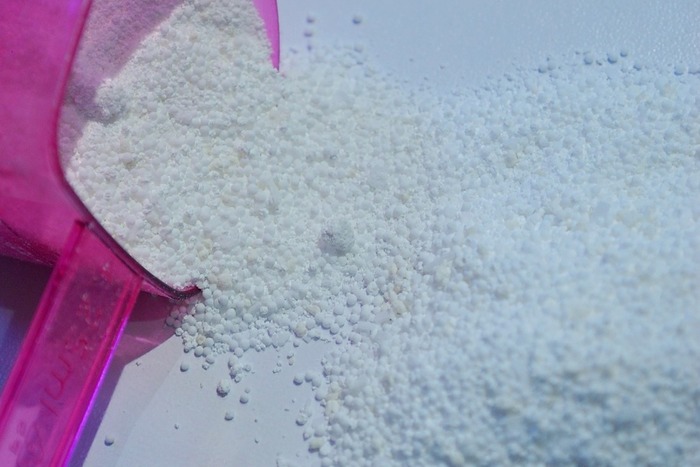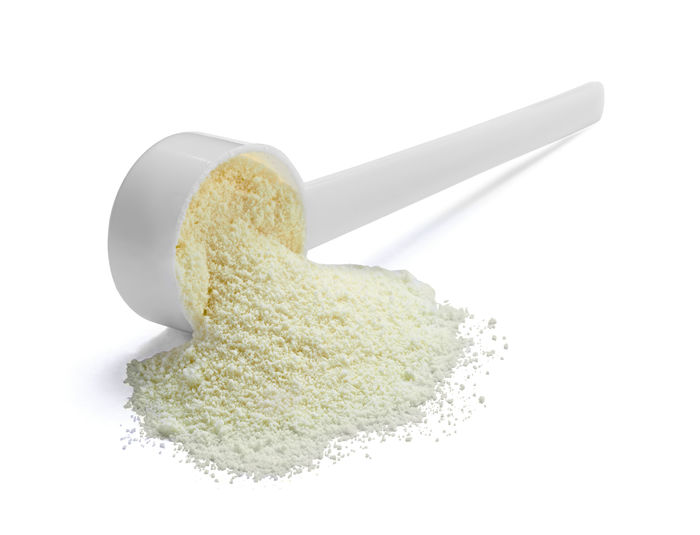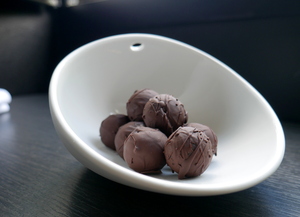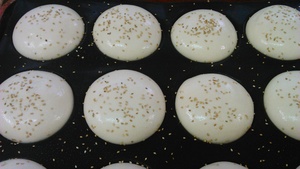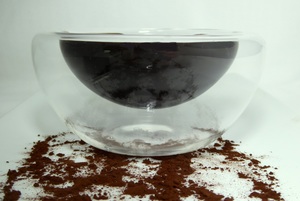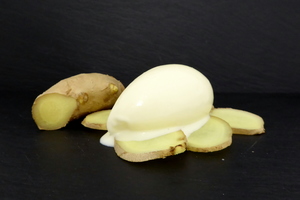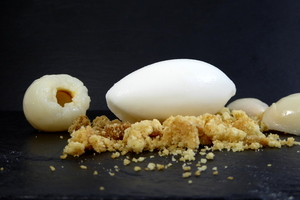Powdered milk
Powdered or dehydrated milk is obtained through the dehydration of pasteurized milk.
The result is a white powder that preserves the natural and characteristic nutritional properties of milk.
For its consumption, the powder must be previously dissolved in water.
This product is of great importance since, unlike liquid milk, it does not need to be kept cold and its shelf life is longer.
It has advantages because it is cheaper and much easier to store.
Despite having the same properties as natural milk, it never has the same flavour as fresh milk.
It can be bought in four basic types: whole, semi-skimmed, skimmed and lactose-free, as well as enriched with vitamins A and D.
Nutritional information (100.0 g)
Energy
490.0
kcal
Carbohydrates
38.0
g
Proteins
26.0
g
Lipids
26.0
g
Sugars
38.0
g
Salt (Sodium)
440.0
mg
Folic acid
21.0
ug
Vitamin C
5.5
g
Vitamin A
277.5
ug
Zinc
2.3
mg
Iron
0.6
mg
Calcium
976.0
mg
Cholesterol
120.0
mg
Polyunsaturated fatty acids
0.66
g
Monounsaturated fatty acids
6.67
g
Saturates
14.08
g
Fiber
0.0
g
The data is merely a guide and should not be used for medical purposes. Those responsible for the web disclaims any responsibility.
Recipes
-
Type of dish
- Beers
- Cocktails
- Breakfasts and brunch
- Burguers
- Juices, milkshakes and beverages
- Shellfish
- Bread and pastries
- Pizzas, patty
- Dessert
- Pasta
- Sándwich
- Pastries
- Finger foods
- Ice creams and sorbets
- Legumes
- Salads
- Eggs
- Patty
- liqueur
- Harvard plate
- Main course
- Meats
- Fish
- Birds
- Vegetables
- Soups and creams
- Rices
- Coffee, chocolate and infusion
- Cheeses
- Appetizers and canapes
- Temperature
- Cuisine type
- Additional culinary preparation
- Conservation technique
- Seasonal recipes
-
- Aromatic herbs
- Beverages
- Big game hunt
- Bread and pastries
- Canned goods and pickles
- Cereals
- Condiments, spices and additives
- Cooked, salted, preserved and cold meats
- Dried fruits and nuts
- Dry pulses
- Edible oils and vinegars
- Eggs and derivatives
- Feathered game hunt
- Fish cuts
- Fishes
- Insects
- Kitchen and bakery tecniques
- Kitchen and bakery utensils
- Meat cuts
- Meats
- Milk, cream and derivatives
- Mushrooms
- Offal
- Pasta, rice, flour and derivatives
- Poultry
- Seafood
- Service techniques
- Service utensils
- Vegetables cuts
- Vegetables, fruits, tubers and seaweed

